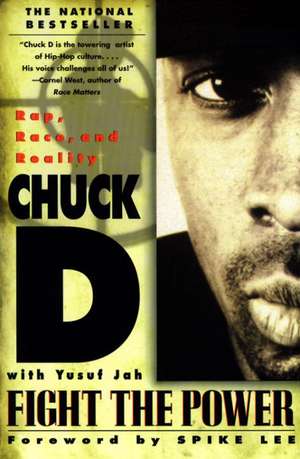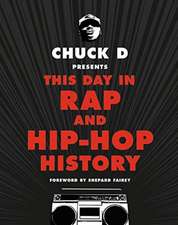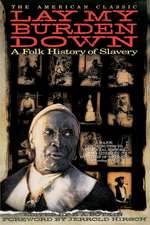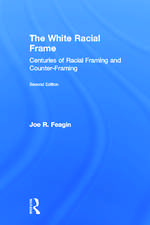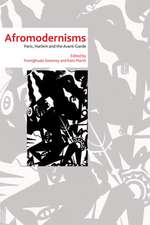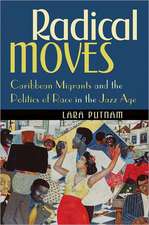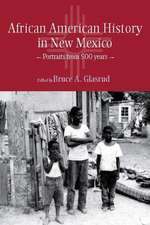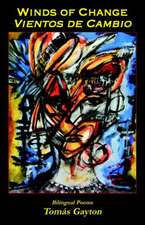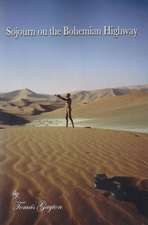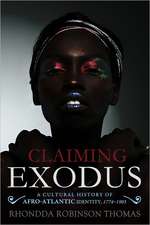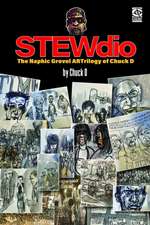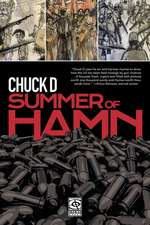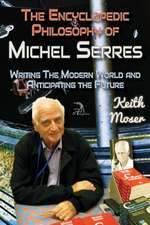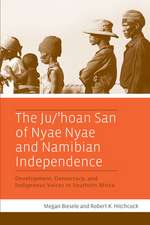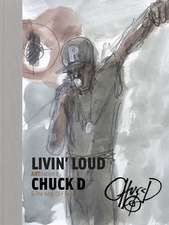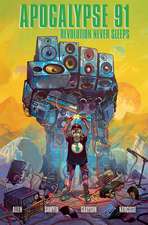Fight the Power: Rap, Race, and Reality
Autor Chuck D, Yusaf Jahen Limba Engleză Paperback – 31 aug 1998
As an insider's view on Hip-Hop culture slides into intimate revelations about his own life, as lyrics from his songs bump shoulders with top ten lists like "The Greatest Rappers of All Time," Chuck D has his say with verve and electrifying energy, with anger, love and truth. A book that brings light into darkness, Fight the Power speaks for a generation. It is a powerful and prophetic message that America, both Black and White, urgently needs to hear.
Nightline with Chuck as the featured guest.
His rejection of celebrity and his constant community activism have made him a hero. For the past five years he's been touring colleges and universities, delivering three hour lectures on everything from the music industry's corruption of young talent, the history of black music from Blues to Rap, his own controversial lyrics, problems in the black community, self-empowerment, contemporary culture and current political leaders to Public Enemy's rise to international stardom. All while maintaining his solo and Public Enemy's recording careers.
Fight the Power examines a multitude of complex social, racial and artistic issues. In his unmistakable voice, Chuck discusses the role of heroes and role models in the black community, Hollywood's negative images of blacks, the effect of gangsta rap, its images on the country's youth and the war between east and west coast rappers that may have spawned the murder of Tupac Shakur, the role of athletes and entertainers in eroding and strengthening values, and other vital contemporary concerns. Candid, thoughtful, and in your face, Fight the Power, the first substantial book by a rapper, offers readers a look into the culture of hip hop and the future of Black culture. -->
Preț: 114.69 lei
Nou
Puncte Express: 172
Preț estimativ în valută:
21.95€ • 22.96$ • 18.23£
21.95€ • 22.96$ • 18.23£
Carte disponibilă
Livrare economică 12-26 martie
Preluare comenzi: 021 569.72.76
Specificații
ISBN-13: 9780385318730
ISBN-10: 0385318731
Pagini: 274
Dimensiuni: 152 x 226 x 23 mm
Greutate: 0.41 kg
Editura: DELTA
ISBN-10: 0385318731
Pagini: 274
Dimensiuni: 152 x 226 x 23 mm
Greutate: 0.41 kg
Editura: DELTA
Notă biografică
Chuck D, one of the pioneers of Rap music, is the founder and lead rapper for Public Enemy, which has a fan base of over twenty million people. Aside from his work with the "Rock the Vote" campaign, for which he was honored with the Patrick Lippert Humanitarian Award, he recently signed on as a reporter for the Fox News Channel. He also acted in his first film, An Alan Smithee Film--Burn, Hollywood, Burn. A new Public Enemy album was released in late 1997.
Yusuf Jah is the author of Uprising: Crips and Bloods Tell the Story of America's Youth in Crossfire. He has also written two other books relating to the Black community and has lectured in colleges across the country.
Yusuf Jah is the author of Uprising: Crips and Bloods Tell the Story of America's Youth in Crossfire. He has also written two other books relating to the Black community and has lectured in colleges across the country.
Extras
I always looked at playing in different places and in front of different audiences like waving the flag of Rap. My goal was to go around the world and stick the flag in the ground. I don't understand people not wanting to travel, explore, and see different cultures and lifestyles. If you believe in something, you should fight for it and fight to make it known. I've never been afraid to go places, that's what it's about. If this planet is to be explored and I only have so many years on it, I could never be satisfied by just being in one spot. I'm not saying that everybody has to go skydiving, but you haven't fully lived if you're only living in a limited way.
In 1991 we went on three entirely different tours, playing in front of three entirely different audiences in order to expand our audience without alienating any of them. In the span of six months we knocked out an Alternative tour with the Sisters of Mercy, a Thrash Metal tour with Anthrax and Primus, and from December to January we did "The World's Greatest Rap Tour," which featured Queen Latifah, Naughty By Nature, Geto Boys, A Tribe Called Quest, Jazzy Jeff and the Fresh Prince, and the Leaders of the New School. Ice-T opened up the first week, but because he was shooting a movie he couldn't continue. The first night on tours we headlined, we would have a meeting amongst all the groups in the arena and lay down the "family rules." We'd let everybody know that we have to look out for each other and work together because customers are paying to see one good show. We had learned an important lesson from some of the earlier tours we did where the headliners would treat the other acts like peons, and we knew that undoubtedly caused friction between people, so we tried to create more of a family atmosphere.
The first tour, which was probably the oddest combination you could find, paired us with the British alternative rock band Sisters of Mercy. Also on the tour was Gang of Four, the hard-rock band Warrior Soul, and the white Rap group I had a hand in putting out, Young Black Teenagers.
We were not the first Rap group to perform with rock bands. At the same time, Ice-T was touring on Lollapalooza with Jane's Addiction. Prior to that back in 1981 Kurtis Blow played with The Clash at Bonds. Kurtis wore a white disco suit and kids in the audience threw tomatoes at him while he was performing. Not long after that Grandmaster Flash opened for The Clash at the Pier, and the audience tossed bottles onto the stage. And people wondered why the S1Ws used to carry Uzis onstage with them. We weren't playing that shit.
Andrew Eldritch, the lead singer of Sisters of Mercy, wanted us on the tour because we were saying things that needed to be said regardless of the consequences. I agreed to be on the tour because to me concert tours, whether they were all-rock bills or all-Rap bills, were becoming too predictable. Everything was sectioned off into neat categories and the audience already knew what they were going to get before the show began. As usual, I wanted to be a part of something different, where the audience wouldn't know what the hell to expect.
In June, Anthrax's tour with Metallica and Slayer concluded, and they invited Flavor and me to their show in Madison Square Garden. We actually came out onstage and performed "Bring the Noise" at the end of the show. The crowd went crazy. There were 20,000 white, rock, head-banging kids, and the crowd went berserk. It was like 130 beats per minute. It was like a whole other world.
Our first night on tour with Anthrax we swaggered into Poughkeepsie. We didn't really practice for the show because we had just finished coming off of the Sisters of Mercy tour. We thought we were ready. The whole day while setting up in the arena we were playing football. We weren't thinking much of it, we were just going to do our thing, so we thought. Primus went on and did their show, then we went on and did our set. First nights are always bad for us. We weren't great, but I felt we were all right. When Anthrax did their set in Poughkeepsie they wrecked us. Anthrax came out with a blistering set. We were like, "Daaaammmn. This is what they do." We got blown away with their energy. Which was a lesson for life. All I remember is after that show I got on the tour bus with an attitude, screaming at my guys. I said, "We wasn't shit, we better not ever get blasted like that again." Most of my guys were saying, "They do a totally different thing than we do." I said, "No they don't do a whole different thing." I was impressing upon my guys that we all do music. It's about energy. If they look hard we can't go out there and look soft. They just looked harder. I was like, "Fuck that, we ain't ever having another group give more effort than us when all it takes is to get down and give a little more." It's like being on a basketball court and somebody just outrunning you, outhustling you, and winning all the time. I said, "Don't let another group outhustle us. If you have one verse to go, you take that verse to the last fucking note." Because sometimes in the middle of a verse you may feel like quitting. While you hear me rhyming, sometimes I'm thinking, "Damn this is a long verse. How long before it's over?" Sometimes you may feel like turning around and saying, "Yo, cut it. I don't feel like doing this shit tonight," but you have to. You have to give it your best effort.
My philosophy is if you're onstage performing, you don't need to have a guitar or a drum, but you'd better have the same intensity and energy. I got the point across because the rest of that tour was a learning experience, and we were going hard every night. We wanted to prove that we were the hardest set ever in Rap.
We don't make nice music, we make hard music, and we want to come across hard--indigestibly hard like a brick. There were some memorable shows on that tour.
I remember our show in Houston. It had to be one hundred degrees inside the arena. We ripped that show. It was awesome. I think that was the most together two different groups that do two different types of music could have been in one night. We wore the crowd out. The audiences were mostly white, but it was a different type of white audience, it was a collaborative white audience. It wasn't a straight-metal audience, the audience knew both groups and both groups' songs. Some may have been into Anthrax, others may have been into Public Enemy, but they were checking out both. By the end of the night they were together as one, because we would come back out at the end of their set and perform "Bring the Noise." It was crazy hectic. One of our guys got to play the guitar. It was dope. It was a workout. That one show made our set harder.
Now when you see a Public Enemy show you see energy. I'm telling you that shit came from the Anthrax tour. Earlier in the year when we did the Sisters of Mercy tour we did a normal Rap set, but on that first night of the Anthrax tour they kicked our ass. We looked like we were going in slow motion.
Another memorable occurrence during that tour was when we played at the University of Connecticut in front of about ten thousand students, and that same night we had to be on Saturday Night Live. We were coming out with the Apocalypse '91: The Enemy Strikes Black album, and the lead single was "Bring the Noise" so Donny Ienner of Sony pulled some strings so we could get some important exposure. We got the invitation from Saturday Night Live but the problem was we already had a gig booked. So we rescheduled the University of Connecticut gig to take place at two o'clock in the afternoon. After our performance we went to the NBC Studios. That night Michael Jordan was the host. Spike Lee and Jesse Jackson were guests, and Public Enemy was the musical guest. That was the Blackest show they ever had, and it was also one of the highest rated shows they ever had.
The Anthrax tour is what really taught us the difference of stepping up. A lot of people thought that because we played with Anthrax we were selling out. Thinking we were up there with instruments playing rock I said, "Why don't you bring your ass to the show? We still play the same jams. We do the same exact show. The only thing that's different is we do 'Bring the Noise' with Anthrax at the end. If you're really down with us you'd come to the show and check us out, support us, and represent." Because of the preconceived notion in many heads, Black faces were few and far between. I encourage people to pick up information about issues and music so they can have facts to back up what they say and not sound ignorant.
We were taught a lot on that tour. One of our guys, Krunch, developed into a light man on that tour. I saw Anthrax's show one night and said, "We need a light man." Krunch volunteered to do the lights. He had to, because everybody in our situation needs a function to justify themselves being on tour. All the ends have to justify the means, so Krunch got his first training on how to do the lights by Rick Downey, the road manager and light man for Anthrax. They had a very tight organization, and it helped us run our ship tighter. Automatically other Rap groups would look at us and say, "We want to be like y'all. Y'all run the tightest Rap ship in the business." Shit, compared to rock groups we're just normal, but we strive to be above normal. It was a very successful tour.
In 1991 we went on three entirely different tours, playing in front of three entirely different audiences in order to expand our audience without alienating any of them. In the span of six months we knocked out an Alternative tour with the Sisters of Mercy, a Thrash Metal tour with Anthrax and Primus, and from December to January we did "The World's Greatest Rap Tour," which featured Queen Latifah, Naughty By Nature, Geto Boys, A Tribe Called Quest, Jazzy Jeff and the Fresh Prince, and the Leaders of the New School. Ice-T opened up the first week, but because he was shooting a movie he couldn't continue. The first night on tours we headlined, we would have a meeting amongst all the groups in the arena and lay down the "family rules." We'd let everybody know that we have to look out for each other and work together because customers are paying to see one good show. We had learned an important lesson from some of the earlier tours we did where the headliners would treat the other acts like peons, and we knew that undoubtedly caused friction between people, so we tried to create more of a family atmosphere.
The first tour, which was probably the oddest combination you could find, paired us with the British alternative rock band Sisters of Mercy. Also on the tour was Gang of Four, the hard-rock band Warrior Soul, and the white Rap group I had a hand in putting out, Young Black Teenagers.
We were not the first Rap group to perform with rock bands. At the same time, Ice-T was touring on Lollapalooza with Jane's Addiction. Prior to that back in 1981 Kurtis Blow played with The Clash at Bonds. Kurtis wore a white disco suit and kids in the audience threw tomatoes at him while he was performing. Not long after that Grandmaster Flash opened for The Clash at the Pier, and the audience tossed bottles onto the stage. And people wondered why the S1Ws used to carry Uzis onstage with them. We weren't playing that shit.
Andrew Eldritch, the lead singer of Sisters of Mercy, wanted us on the tour because we were saying things that needed to be said regardless of the consequences. I agreed to be on the tour because to me concert tours, whether they were all-rock bills or all-Rap bills, were becoming too predictable. Everything was sectioned off into neat categories and the audience already knew what they were going to get before the show began. As usual, I wanted to be a part of something different, where the audience wouldn't know what the hell to expect.
In June, Anthrax's tour with Metallica and Slayer concluded, and they invited Flavor and me to their show in Madison Square Garden. We actually came out onstage and performed "Bring the Noise" at the end of the show. The crowd went crazy. There were 20,000 white, rock, head-banging kids, and the crowd went berserk. It was like 130 beats per minute. It was like a whole other world.
Our first night on tour with Anthrax we swaggered into Poughkeepsie. We didn't really practice for the show because we had just finished coming off of the Sisters of Mercy tour. We thought we were ready. The whole day while setting up in the arena we were playing football. We weren't thinking much of it, we were just going to do our thing, so we thought. Primus went on and did their show, then we went on and did our set. First nights are always bad for us. We weren't great, but I felt we were all right. When Anthrax did their set in Poughkeepsie they wrecked us. Anthrax came out with a blistering set. We were like, "Daaaammmn. This is what they do." We got blown away with their energy. Which was a lesson for life. All I remember is after that show I got on the tour bus with an attitude, screaming at my guys. I said, "We wasn't shit, we better not ever get blasted like that again." Most of my guys were saying, "They do a totally different thing than we do." I said, "No they don't do a whole different thing." I was impressing upon my guys that we all do music. It's about energy. If they look hard we can't go out there and look soft. They just looked harder. I was like, "Fuck that, we ain't ever having another group give more effort than us when all it takes is to get down and give a little more." It's like being on a basketball court and somebody just outrunning you, outhustling you, and winning all the time. I said, "Don't let another group outhustle us. If you have one verse to go, you take that verse to the last fucking note." Because sometimes in the middle of a verse you may feel like quitting. While you hear me rhyming, sometimes I'm thinking, "Damn this is a long verse. How long before it's over?" Sometimes you may feel like turning around and saying, "Yo, cut it. I don't feel like doing this shit tonight," but you have to. You have to give it your best effort.
My philosophy is if you're onstage performing, you don't need to have a guitar or a drum, but you'd better have the same intensity and energy. I got the point across because the rest of that tour was a learning experience, and we were going hard every night. We wanted to prove that we were the hardest set ever in Rap.
We don't make nice music, we make hard music, and we want to come across hard--indigestibly hard like a brick. There were some memorable shows on that tour.
I remember our show in Houston. It had to be one hundred degrees inside the arena. We ripped that show. It was awesome. I think that was the most together two different groups that do two different types of music could have been in one night. We wore the crowd out. The audiences were mostly white, but it was a different type of white audience, it was a collaborative white audience. It wasn't a straight-metal audience, the audience knew both groups and both groups' songs. Some may have been into Anthrax, others may have been into Public Enemy, but they were checking out both. By the end of the night they were together as one, because we would come back out at the end of their set and perform "Bring the Noise." It was crazy hectic. One of our guys got to play the guitar. It was dope. It was a workout. That one show made our set harder.
Now when you see a Public Enemy show you see energy. I'm telling you that shit came from the Anthrax tour. Earlier in the year when we did the Sisters of Mercy tour we did a normal Rap set, but on that first night of the Anthrax tour they kicked our ass. We looked like we were going in slow motion.
Another memorable occurrence during that tour was when we played at the University of Connecticut in front of about ten thousand students, and that same night we had to be on Saturday Night Live. We were coming out with the Apocalypse '91: The Enemy Strikes Black album, and the lead single was "Bring the Noise" so Donny Ienner of Sony pulled some strings so we could get some important exposure. We got the invitation from Saturday Night Live but the problem was we already had a gig booked. So we rescheduled the University of Connecticut gig to take place at two o'clock in the afternoon. After our performance we went to the NBC Studios. That night Michael Jordan was the host. Spike Lee and Jesse Jackson were guests, and Public Enemy was the musical guest. That was the Blackest show they ever had, and it was also one of the highest rated shows they ever had.
The Anthrax tour is what really taught us the difference of stepping up. A lot of people thought that because we played with Anthrax we were selling out. Thinking we were up there with instruments playing rock I said, "Why don't you bring your ass to the show? We still play the same jams. We do the same exact show. The only thing that's different is we do 'Bring the Noise' with Anthrax at the end. If you're really down with us you'd come to the show and check us out, support us, and represent." Because of the preconceived notion in many heads, Black faces were few and far between. I encourage people to pick up information about issues and music so they can have facts to back up what they say and not sound ignorant.
We were taught a lot on that tour. One of our guys, Krunch, developed into a light man on that tour. I saw Anthrax's show one night and said, "We need a light man." Krunch volunteered to do the lights. He had to, because everybody in our situation needs a function to justify themselves being on tour. All the ends have to justify the means, so Krunch got his first training on how to do the lights by Rick Downey, the road manager and light man for Anthrax. They had a very tight organization, and it helped us run our ship tighter. Automatically other Rap groups would look at us and say, "We want to be like y'all. Y'all run the tightest Rap ship in the business." Shit, compared to rock groups we're just normal, but we strive to be above normal. It was a very successful tour.
Recenzii
"Chuck D is the towering artist of Hip-Hop culture....His voice challenges all of us!"
--Cornel West, author of Race Matters
"Fight the Power will raise some hackles, generate some furor, and, most importantly, get people thinking about the way things are, and why."
--Chicago Sun-Times
"Gives free rein to hip-hop's longest-standing cultural watchdog....Anyone who expresses support for both Tupac and C. Delores Tucker in one book is worth listening to."
--The Source
--Cornel West, author of Race Matters
"Fight the Power will raise some hackles, generate some furor, and, most importantly, get people thinking about the way things are, and why."
--Chicago Sun-Times
"Gives free rein to hip-hop's longest-standing cultural watchdog....Anyone who expresses support for both Tupac and C. Delores Tucker in one book is worth listening to."
--The Source
Descriere
A national bestseller, "Fight the Power" is an autobiography/treatise from Chuck D, the creative force behind Public Enemy, a founding father of Rap, and one of the music scene's most political and controversial figures. Photos.
